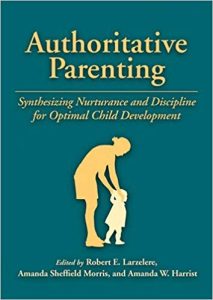How Democratic Parenting Can Lead to Positive Outcomes
Contents
Many parents have changed their parenting style to reflect a more democratic style and have become better parents and mentors. We want to share with you how to recognize if you or someone or family you know are permissive parents and how to improve the life of your children and yourself with good parenting skills.
When it comes to parenting styles, parents can take many different approaches. One of the most popular approaches is known as democratic parenting. This parenting style focuses on creating an environment of mutual respect between parents and children, where children are encouraged to express their opinions and have a say in decisions that affect them. This type of parenting encourages children to be independent thinkers and to take responsibility for their actions. It also emphasizes the importance of communication and negotiation between parents and children.
In contrast to democratic parenting, other parenting styles may be more authoritarian. These styles may involve strict rules and expectations, and punishments for misbehavior. This type of parenting may be beneficial in some cases, as it can help children learn to follow the rules and develop self-discipline. However, it can also lead to resentment and a lack of trust between parents and children.
Ultimately, the best parenting style for any family will depend on the individual needs of the family and the children involved. Democratic parenting can be a great way to foster a healthy relationship between parents and children, while other parenting styles may be more suitable for specific situations. Ultimately, the goal should be to create an environment where children feel respected and empowered to make their own decisions.
In this post, we’ll explore the differences between democratic parenting and other parenting styles, so you can decide on the best way to raise your children.
Permissive Parenting
Permissive parenting is a style focused on creating an environment of open communication and respect between parent and child. It has positive and negative aspects and requires careful consideration of the child’s needs. With thoughtful implementation, permissive parenting can foster healthy relationships and provide a supportive environment for children to grow and learn.
With permissive parenting, parents do not discipline their children and seem to let the children control all aspects of their own lives and sometimes even control the parent’s behavior to their wants. Using a Permissive parenting approach is not the best way to communicate with your children.
Don’t Neglect Your Children With Permissive Parenting
Many parents may be permissive at one point in time, using an easygoing relationship with their children…though as a parent, simply because they think that if they don’t give their kids everything they want, their children will reject them is not good. There is also the issue of simply being lazy with overall parenting responsibilities.

The permissive parenting style can be very harmful to not only the parents but the children. Overindulgent parenting can develop horrible personal issues with the children as they grow older.
Not only is the permissive parenting style an issue for the relationship between the child and their parents, but everyone around the family who has to deal with the Child’s frequent disruptions. Have you ever been in a grocery store or shopping mall and had to listen and watch a screaming child throw a tantrum in public? This is a sign of a child suffering from their parent’s indulgent parenting. Most of the time, you will see the parents trying to calm down the child by giving in to whatever they want. This is not healthy for the child.
Some common effects of permissive parents can have both short and long-term effects you should consider.
The short-term effects include behavior problems, unappreciative children, and irresponsible children. The permissive parenting style is just temporarily patching up the problem. There will also be a general lack of respect for actions and the consequences of actions.
The long-term effects can consist of resentment toward parents for not setting clear boundaries, inability to set boundaries on their behavior as the child gets older, Strong resentment, and problems with any authority as the child becomes an adult. This will hurt the Child’s ability to focus on school work or work any job in the future.
Correcting this parenting method is essential as soon as you realize a problem with your children or anyone you know. The best parenting style is neither very indulgent, easygoing, or strict but instead a parenting style that is in-between and fair for both the parents and the children.
Democratic Parenting
Democratic parents help children learn to be responsible for themselves and consider their behavior’s consequences. Parents do this by providing clear, reasonable expectations for their children and explaining why they expect their children to behave in a particular manner. They monitor their children’s behavior to ensure they follow the rules and expectations. They do this warmly and lovingly. They often “try to catch their children being good” and reinforce the good behavior rather than focusing on the bad.

Authoritarian parents don’t explain why they want their children to do things. If a child questions a rule or command, the parent might answer, “Because I said so.” Parents tend to focus on bad behavior rather than positive behavior, and children are scolded or punished, often harshly, for not following the rules.
Children with authoritarian parents usually do not learn to think for themselves and understand why the parent requires certain behaviors.
While some have different names or alternative style types of parenting, you can get a better view here of the Democratic Parenting style compared to others out there.
Benefits of Democratic Parenting
Democratic parenting encourages children to develop their sense of autonomy and independence, as they can make their own decisions and express their opinions. This helps build self-confidence and self-esteem in children, as they can make their own choices and take responsibility for their actions. It also encourages open communication between parents and children, which can help to build trust and understanding.
Democratic parenting also helps to foster a sense of responsibility in children. As they are allowed to make their own decisions, they are more likely to take responsibility for their actions and understand the consequences of their choices. This can help to build essential life skills such as problem-solving and decision-making.
Finally, democratic parenting can help to create a more harmonious home environment. Children are allowed to express their opinions and make decisions, so they are more likely to feel respected and valued. This can help to reduce conflict and create a more positive home environment.
Overall, democratic parenting is a style of parenting that has numerous benefits for both parents and children. It encourages open communication, builds self-confidence and self-esteem, fosters responsibility, and creates a more harmonious home environment. Psychologists are increasingly recommending this parenting style, as it can help create a healthy and positive relationship between parents and children.
Challenges of Democratic Parenting
Democratic parenting is a style of parenting that encourages children to participate in decision-making and to have a say in their lives. This parenting style can be beneficial for children, as it helps them develop self-confidence and autonomy. However, it can also be difficult for parents to implement, as it requires great patience and understanding.
Parents must be willing to listen to their children and consider their opinions when making decisions. They must also be able to set clear boundaries and expectations while being open to negotiation and compromise. This can be difficult for parents who are used to having the final say in all matters. It can also be difficult for parents to balance giving their children freedom and ensuring they are still following the rules.
In addition, democratic parenting requires excellent communication between parents and children. Parents must be willing to talk openly and honestly with their children about their feelings and opinions. This can be a challenge for parents who are used to giving orders and expecting their children to obey.
Democratic parenting requires parents to be consistent in their approach. Parents must be willing to stick to their decisions and not give in to their children’s demands. This can be difficult for parents who are used to giving in to their children’s demands to keep the peace.
Strategies for Implementing Democratic Parenting
This type of parenting encourages open communication between parents and children, allowing children to express their feelings and opinions. It also encourages parents to be involved in their children’s lives and to take an active role in helping them make decisions. Implementing democratic parenting can be challenging, but several strategies can help.
- Establish clear expectations and boundaries for your children. This will help them understand what is expected of them and what is not acceptable. It is also essential to be consistent in enforcing these expectations and boundaries.
- Listening to your children and considering their feelings and opinions is vital. This will help them feel respected and heard, and it will also help them learn how to make decisions on their own.
- Provide your children with positive reinforcement when they make good decisions or behave in a way that is consistent with your expectations. This will help them learn to make positive choices and develop a sense of responsibility.
If you are a practitioner of the authoritative parenting style or even just a supporter of the philosophy behind it, you probably have been faced with praise and criticism from other people. Most of that probably comes from parents, as often, each family believes their way is the right one. Ultimately, though, you and your partner must be the ones to figure out a way that works for your whole family. No amount of pressure from the media, friends, family, or others can force you into playing a role with your children that is not right for you.

Authoritative child rearing is about having a supportive yet strict environment where you guide your children to proper behaviors and actions. You can be your child’s best friend, which will likely be great for a short time. Without the right amount of nurturing through “tough love”, so to speak, it is easy for things to go awry with your children and the management of your household. Parents can follow three other Baumrind parenting styles, each with advantages and disadvantages. Although your choice of parenting style should be relatively intuitive and based on your vision of your relationship with your children, it can help you review these styles to understand what fits with your ideas.
The other three types of parenting styles are permissive parenting, authoritarian parenting, and uninvolved parenting. The psychologist Diana Baumrind determined that these four parenting styles exist after conducting a study of over 100 children in preschool. This study’s results and the conclusions Baumrind drew from them were groundbreaking during the early 1960′s. These distinctions in Baumrind parenting styles are based on the level of nurturing and warmth, expectations of control and maturity, disciplinary strategies, and communication styles. Authoritative child rearing typically will make the child happier, have better self-esteem, and be more capable and successful.

Authoritative parents have their work cut out for them. This style is difficult to maintain, even though the rewards far outweigh the rocky times as your family adjusts to it. If this is not how you were raised or what you are used to doing, keep an open mind and be patient. If you experience a “fail” one day, pick it up the next.
To keep everyone safe and relatively happy, make this adjustment to an authoritative parenting style in steps. Your children are far more likely to go along with it this way. Remember to keep the ultimate goal in mind- building a great relationship with your children as authoritative parents while guiding them gently yet deliberately.
Getting to grips with child-rearing can be a tricky thing. There is no manual to follow, and many parents feel like they are just making it up as they go along. The kind of style that you approach this with is going to be different as well. Depending on the nature of your child and how they respond to certain things, you may feel that it is best to take the stance of authoritative parenting. Authoritative parents tend to use what some people may view as an extreme approach when it comes to parenting. Characteristically, authoritarian parents will set high goals and expectations for their children and push them to meet them. There may be severe punishments for this parenting style, and not everyone is keen on this idea. Effective parenting styles can differ from one person to the other, but for many, the democratic parenting style seems to hold some promise. It takes a step away from the permissive parenting style and allows people to see things in a new light. Parents are always looking for a way to relate to their children and give them the proper guidance and support they will need for the future.
 Parent-Child Studying
Parent-Child Studying
When shaping your child’s behavior, it is essential to realize that he or she has less experience with life than you do. Most parents who take on the authoritative approach to parenting will set down the rules and enforce them. Authoritarian parents can sometimes create bitterness between themselves and their children, and this can cause problems in the long run. A democratic parenting style is going to provide people with a different view. However, authoritative parents may feel that this style is too “soft”. When it comes to using the democratic parent style, there are distinct advantages over that of the authoritative parenting style.
One of these advantages is mutual respect. As the child ages, effective parent styles will give him or her greater responsibility. Parents will also have much more respect for their children due to their making informed decisions. This is the key here: information. By informing your child of certain things when it comes to gaining freedom, they will be able to make those decisions that will help them in the long run. Effective parenting styles like this do not just aim to educate or punish. They also aim to give children a taste of what life itself is like.
Authoritarian parents may like to adopt certain aspects of the democratic parenting style for several reasons. While they may still hold that keeping high expectations of their children is a good idea, it is alright if they fail now and then. Not everyone can be perfect, and authoritative parents will also realize that. It is essential to do one’s best, but it is also important to let your children know that you have a support system, just in case. Authoritative parenting can appear to be a much more stable style for some, and it certainly does have advantages that permissive and even democratic parenting styles can end up missing. Here is a helpful video that helps to explains the parenting styles of authoritarian, permissive, and democratic methods.
Ultimately, you are preparing your child for the adult world. They will be alone out there, and they will be making their own decisions. When it comes to things like this, they must realize their responsibility. Having the strong backing of authoritative parents can help, but the democratic parenting style can often provide a greater amount of support. It does this by allowing the children to realize that they are responsible for their actions and, therefore, will prompt them to choose the right ones.
A mixture of methods is sometimes the best thing to choose. Parents are there to control and protect their children, but they are also meant to act as teachers and guides. Getting this balance right can be very difficult and will take a lot of work. When it comes to effective parenting styles, authoritarian parents will sometimes need to mix democratic and authoritative parenting styles that can bring about great results for all.

 Parent-Child Studying
Parent-Child Studying
